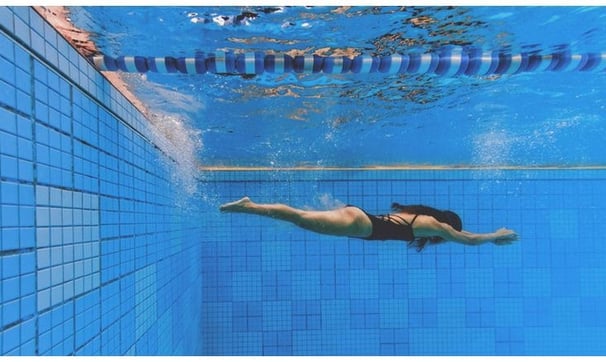Discover Aquatic Bliss in swimming -Your Ultimate exercise
Dive into the world of aquatic bliss in swimming , your trusted source for everything related to swimming. Whether you're a seasoned swimmer or just beginning to explore the joys of the water .


Swimming is a popular recreational activity and sport that offers several merits and demerits. It's important to note that the advantages and disadvantages of swimming can vary depending on individual circumstances and preferences. Here are some of the merits and demerits of swimming:
8 Advantages and 8 Disadvantages of Swimming...
Advantages of Swimming:
Physical Fitness: Swimming is an excellent full-body workout that engages various muscle groups. It helps improve cardiovascular fitness, strength, endurance, and flexibility.
Low Impact: Swimming is a low-impact exercise, making it suitable for individuals with joint issues, arthritis, or those recovering from injuries. It reduces the risk of impact-related injuries compared to activities like running.
Weight Management: Swimming can contribute to weight management and weight loss due to the high calorie-burning potential of the activity.
Stress Reduction: Swimming is often considered a relaxing and stress-relieving activity. The soothing sensation of being in the water can help reduce stress and anxiety.
Improved Posture: Swimming can help improve posture by strengthening the muscles that support the spine.
Enhanced Coordination: Swimming requires coordination between the arms and legs, which can help improve overall body coordination.
Social Interaction: Swimming can be a social activity when done in groups or as part of a team, fostering camaraderie and social connections.
Life-Saving Skill: Learning how to swim is an essential life skill that can help prevent drowning accidents.
Disadvantages of Swimming:
Waterborne Infections: Swimming in pools or natural bodies of water can expose individuals to waterborne infections or illnesses if the water is contaminated.
Time-Consuming: Swimming often requires access to a pool or open water, which may not be readily available to everyone. Additionally, the time needed for changing, showering, and maintaining pool hygiene can make swimming time-consuming.
Expense: Joining a swimming club or accessing a pool can be expensive. Costs include membership fees, swim gear, and pool maintenance.
Chlorine Exposure: Chlorine is commonly used to disinfect pool water, and exposure to high levels of chlorine can lead to skin and respiratory irritations for some individuals.
Limited Weight-Bearing Exercise: While swimming is an excellent cardiovascular workout, it doesn't provide the same bone-strengthening benefits as weight-bearing exercises like running or weightlifting.
Cold Water: In open water swimming, especially in natural bodies of water, the temperature can be cold, which may not be comfortable for everyone.
Risk of Injuries: While swimming is generally low-impact, there is still a risk of injuries, such as shoulder overuse injuries or muscle strains, especially in competitive swimmers.
Competitive Pressure: Competitive swimming can come with a high level of pressure and stress, particularly for athletes aiming for top performance.
It's essential to consider both the merits and demerits of swimming when deciding if it's the right activity for you. Many people find swimming to be an enjoyable and beneficial exercise, but it's important to address any potential drawbacks and safety concerns, especially when swimming in unfamiliar or challenging conditions.
